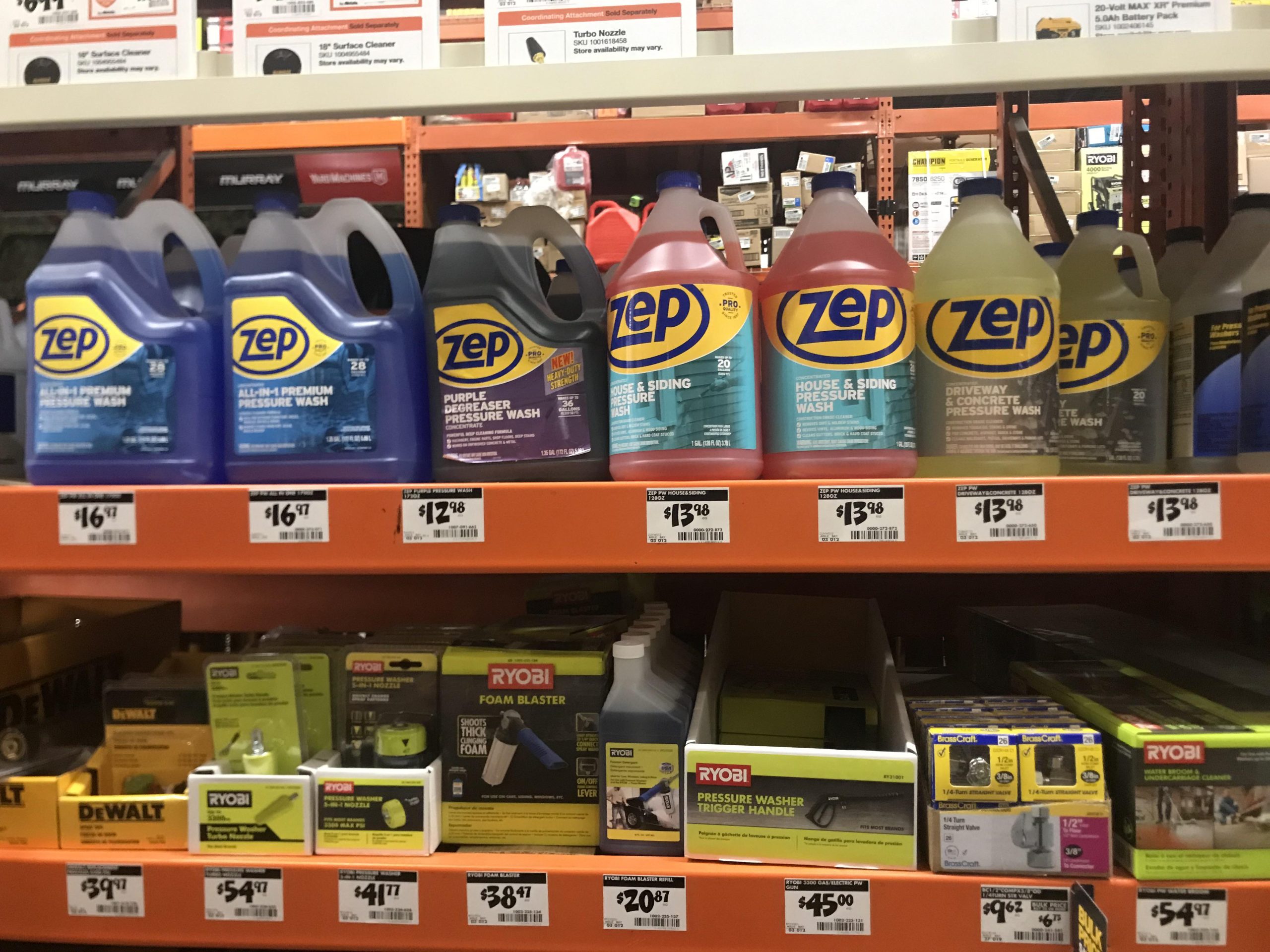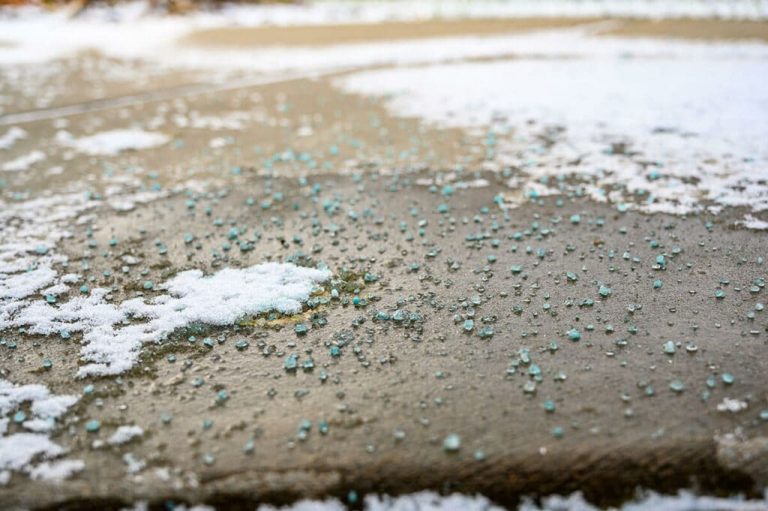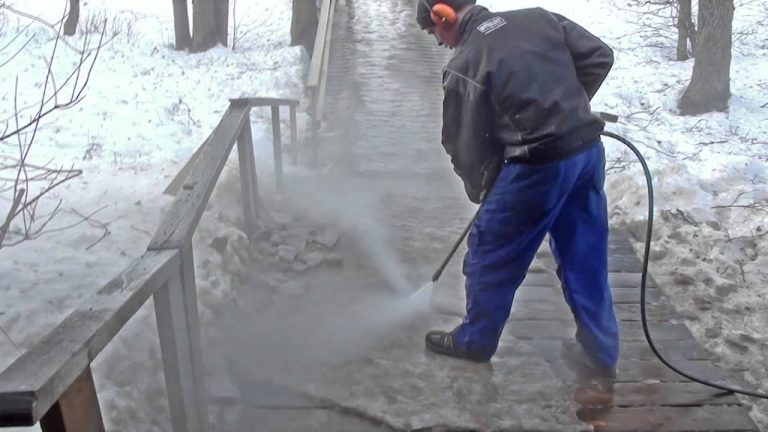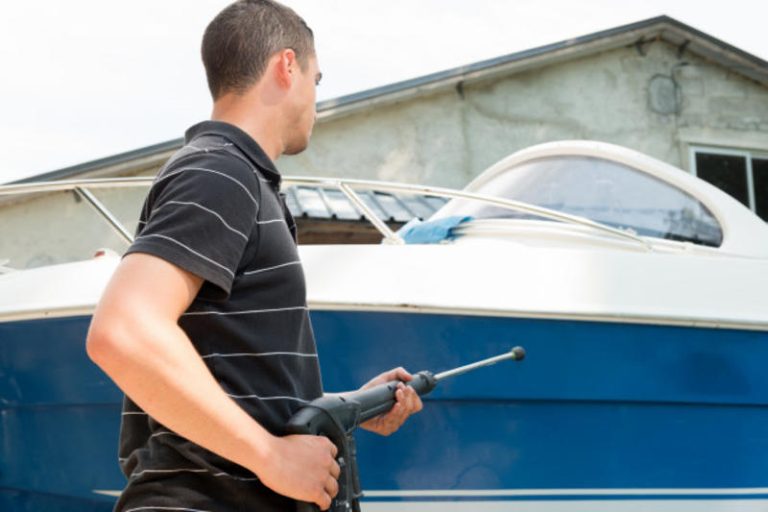
When it comes to power washing, many homeowners believe the high-pressure blast of water is enough to clean anything. While it’s true that pressure alone can remove a lot of grime, there’s one important factor that often gets overlooked: detergent.
So, is it really necessary to use detergent when power washing? The answer is: it depends on what you’re cleaning — but in most cases, yes, detergent makes a big difference. In this article, we’ll break down when you should use detergent, what types are safe, and how to apply them correctly for the best results. 🧼✅
💡 What Does Detergent Actually Do?
Pressure washers use water to mechanically lift dirt, but they don’t always chemically break down oils, mold, algae, or embedded grime. That’s where detergent comes in.
Detergents help by:
- Loosening grease and oils
- Breaking down algae, mildew, and mold spores
- Lifting dirt from porous surfaces like concrete or wood
- Improving cleaning efficiency (less pressure required)
Using detergent reduces the amount of force you need, which protects delicate surfaces and gives a more thorough clean.
🧽 When Should You Use Detergent?
Let’s go over some common surfaces and whether detergent is recommended:
| Surface | Use Detergent? | Why |
|---|---|---|
| Vinyl Siding 🏠 | Yes ✅ | Removes mold, mildew, and oxidation |
| Concrete Driveway 🧱 | Yes ✅ | Lifts oil stains and deep grime |
| Wooden Decking 🪵 | Yes ✅ | Cleans mildew and prepares for sealing |
| Painted Surfaces 🎨 | No/Light use ⚠️ | May strip paint if too harsh |
| Windows & Glass 🪟 | No ❌ | Can leave streaks or cause chemical fogging |
| Vehicles 🚗 | Yes ✅ | Helps loosen road grime and bugs |
| Roofs (Soft Wash) 🏠 | Yes ✅ | Necessary to kill algae and moss |
So, in most outdoor power washing scenarios — especially where organic growth, oil, or age is involved — detergent is a key part of the cleaning process.
🧴 Types of Detergents for Pressure Washing
Not all soaps are created equal, and you should never use household dish soap in a pressure washer. It can damage seals and harm your landscaping. Instead, use detergents that are specifically designed for pressure washing.
🧼 Common Types:
- All-Purpose Cleaners
Great for siding, decks, fences, and general dirt. - Degreasers
Formulated for driveways, garages, and other oily surfaces. - Mold & Mildew Removers
Contain agents like bleach or sodium hypochlorite. - Vehicle Wash Soaps
Gentler formulas that won’t strip wax or damage paint. - Roof Wash Solutions
Specifically designed for soft washing with low pressure.
💡 Pro Tip: Look for biodegradable and environmentally safe detergents, especially if you’re washing near plants or water sources. 🌿🌊
Browse Amazon Here For Power Washing Detergents
🔧 How to Apply Detergent the Right Way
Using detergent effectively is all about timing and technique:
✅ Use the Soap Injector Setting
Most pressure washers have a soap tip nozzle (usually black) or a detergent injector setting that applies detergent at low pressure.
✅ Let It Dwell
Allow the soap to sit for 5–10 minutes on the surface — but don’t let it dry! This dwell time helps the chemicals work deep into the grime.
✅ Work from the Bottom Up
When applying detergent, go from the bottom to the top. This helps avoid streaks and ensures full coverage.
✅ Rinse from the Top Down
Once it’s time to rinse with high pressure, start at the top and work your way down for a streak-free clean.
⚠️ What Happens If You Don’t Use Detergent?
While some surfaces may still look cleaner after pressure washing without soap, skipping detergent can result in:
- Uneven cleaning
- Leftover grime or mold
- Need for higher PSI, which can damage delicate surfaces
- Quicker reappearance of dirt and organic growth
So while you can technically pressure wash without detergent, you often won’t get the same depth of clean — and the results may not last as long. 🧼⌛
🌿 Is Detergent Safe for the Environment?
This depends on what you use. Harsh chemicals can damage lawns, harm wildlife, or contaminate groundwater. But many manufacturers now offer eco-friendly detergents that are:
- Non-toxic
- Biodegradable
- Safe for plants and pets
If you’re washing near grass, gardens, or drainage areas, always opt for an environmentally responsible product.
🛠️ Tips to Avoid Common Mistakes
- Don’t use bleach in your pressure washer unless it’s formulated and approved for it. Bleach can destroy seals and damage the pump.
- Don’t let detergent dry on surfaces — this can cause streaks or residue.
- Don’t use too much soap — follow dilution instructions carefully.
- Always rinse thoroughly after using any chemical cleaner.
✅ Final Verdict
So, is detergent necessary when power washing?
In most cases, YES. Here’s why:
✅ It enhances the effectiveness of your clean
✅ It reduces the need for high pressure
✅ It targets stains and organic buildup
✅ It extends the results of your cleaning
✅ It saves time and effort overall
The right detergent, used correctly, can transform your power washing results from good to outstanding. So next time you’re gearing up to blast away grime, don’t skip the soap! 🧴💪💦






